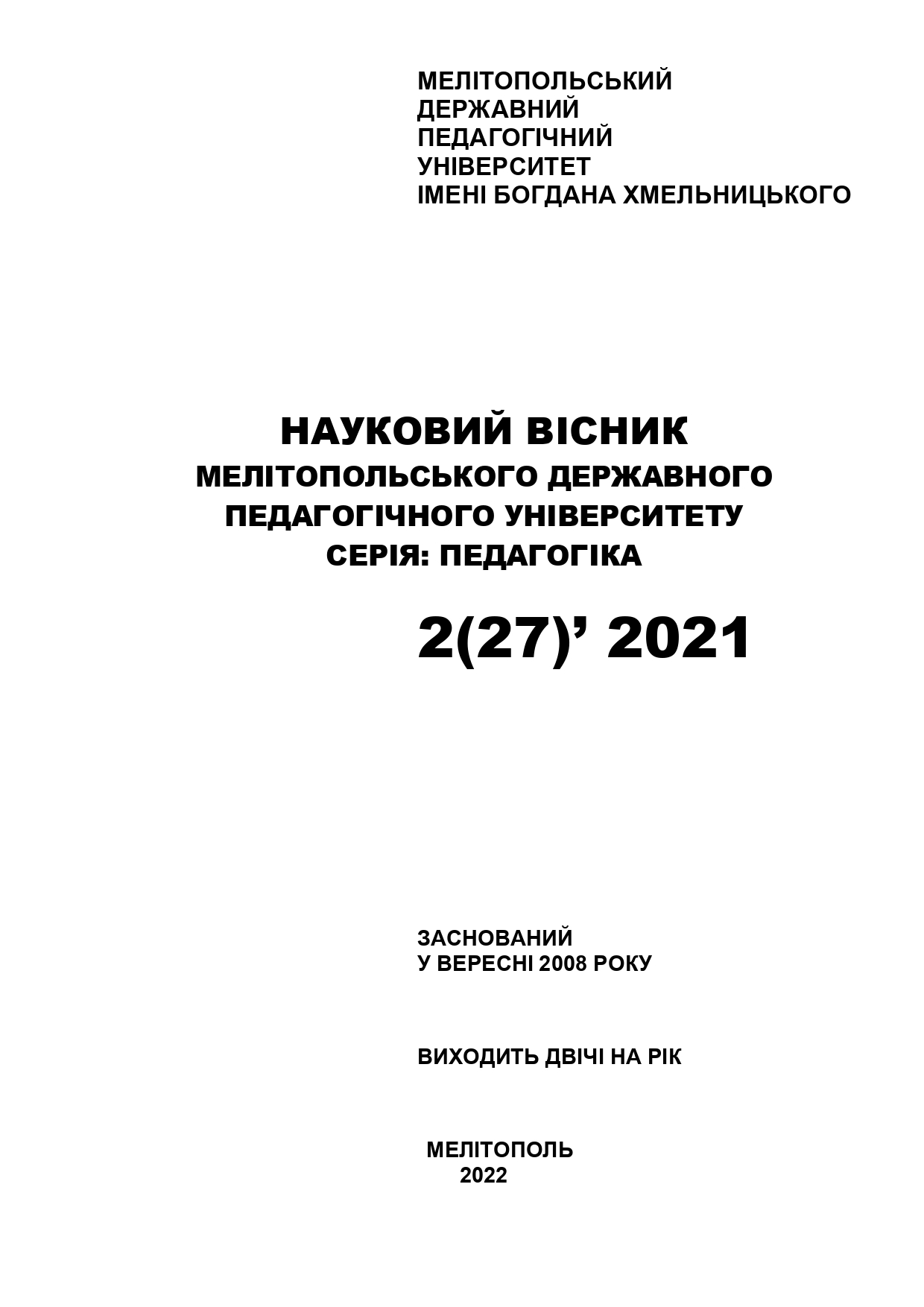Принципи формування розповідного мовлення у дітей дошкільного віку
Анотація
У статті розглянуто чинні правила (ідеї) формування розповідного мовлення у дітей дошкільного віку, а також розроблено нові принципи з урахуванням міждисциплінарних знань. Виокремлено та схарактеризовано такі психолінгвопедагогічні й ілнгвопсихопедагогічні принципи: єдності психіки та діяльності; розвитку в діяльності; єдності свідомості, діяльності та спілкування; розвивального навчання; інтеріоризації та екстеріоризації як механізмів розвитку розповідного мовлення; урахування зони найближчого розвитку дітей; суб’єктності; виховувального навчання засобами рідної мови й рідного мовлення; послідовності й доступності; систематичної роботи над мовою і мовленнєвими фразами розповідного характеру; принцип наочності; урахування вікових та індивідуальних особливостей дітей; міцності засвоєння мовленнєвих умінь і навичок; рефлексії; творчої активності; успішності; орієнтації на особистість дитини під час добору психолінгвістичного матеріалу в процесі формування розповідного мовлення; комплексного розвитку всіх психічних процесів, станів; когнітивний принцип; соціокультурний принцип; принцип формування внутрішніх мотивів побудови розповіді; принцип функціональності; опертя на алгоритми акту соціально орієнтованого мовленнєвого спілкування; принцип розвитку у дітей уявлень про логіко-структурну схему розповіді; принцип динамічності розповіді; забезпечення зв’язності розповідного висловлювання; одночасного розвитку лексичних та граматичних операцій побудови розповіді; сприймання та інтерпретації зображеного на картинках; забезпечення просодичної виразності мовлення. Усі зазначені принципи ґрунтуються на закономірностях опанування дітьми дошкільного віку мовлення та мови.




